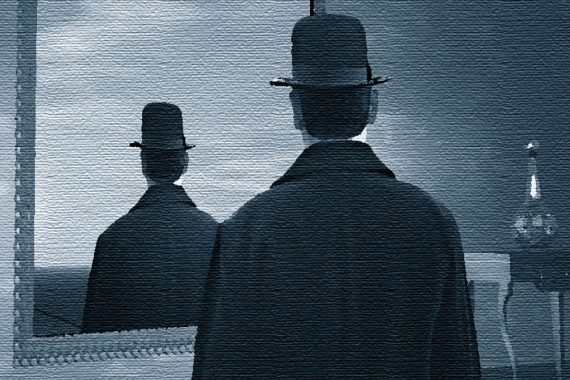Dear Editor of Pulse,
I am a scientist and I have studied science for 75% of my life, I even subscribe to New Scientist (there is now nothing I don’t know about string theory and time travel).
I am hoping you will publish my latest research as it may be of interest to your readership.
I have made an observational study of 15 GPs (n=15) in their natural environment and have grouped my findings under the following headings.
Gross anatomy
The diagram below shows their key features.

Although GPs look like you or I they in fact differ in significant ways, they all have x-ray eyes for example (oh and some of them have tails and sharp claws, but that’s only ever been reported in the Daily Mail)
They also have reduced numbers of sensory receptors which means they can sit in front of a computer working for up to 16 hours a day without eating.
Brains
They have a high brain to body mass ratio and their brains are about the same size as their heads. A large amount of blood pumps up to their brains every time they have a clever idea. However, the amygdala is atrophied in GPs which explains why the media can call them ’greedy, pension grabbing good for nothing, self-centred arseholes’ without causing them any offence.
Biochemistry
Their blood is composed of molecules of the order C2952H4664N812S8Fe4. That’s a lot of carbon. Which explains why they like nibbling on pencils (and eating coal).
Behaviour
I have spent many hours observing their behaviour with my binoculars. Whilst at work they tap people with small rubber hammers and press little tuning forks onto their foreheads. For extra pleasure they sometimes get people to take off their clothes. They appear to be happy eating almost anything, I have observed one of them snacking on a two-week-old cheese sandwich he accidentally found poking out of the sofa in the coffee room. After working flat out all day they drive incredibly quickly to get home where they sit and drink a special type of fruit extract which makes them cry.
Reproduction
It is not yet clear how they spawn baby GPs as they never appear to have time for courtship rituals or sexual intercourse, a fact I have verified by spending hours gazing at them through their bedroom windows.
Conclusion
This exhaustive observational study reveals that the GP differs in many key ways from ordinary people. It’s just a shame that their breeding rate has dwindled and that the Government is intent on creating an environment which will soon make them extinct.
Dr Kevin Hinkley is a GP in Edinburgh
Pulse October survey
Take our July 2025 survey to potentially win £1.000 worth of tokens













